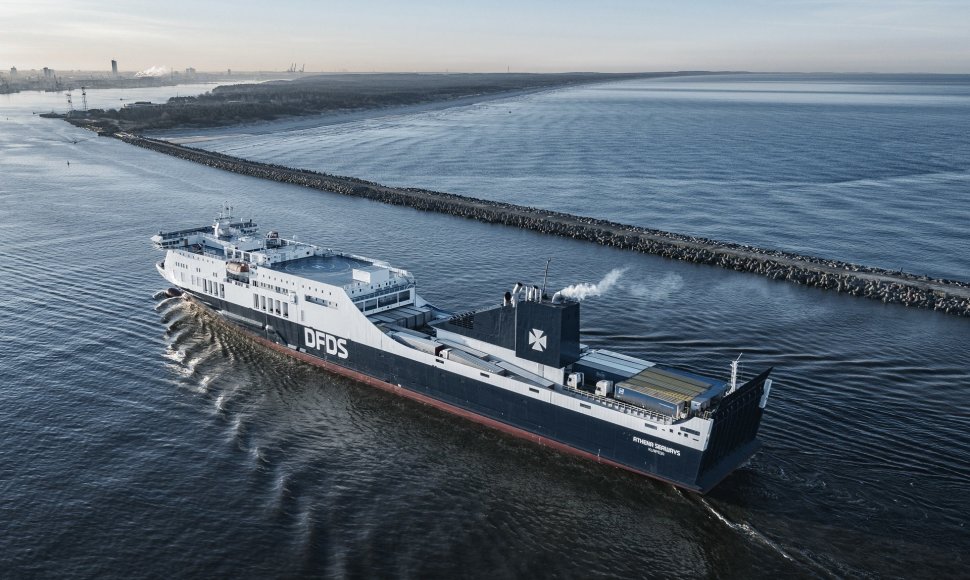“Travellers’ moods continue to be strongly influenced by the pandemic context, and so most of the respondents in the Baltic States are not planning travel abroad in the near future. Travellers are hopeful for the Easter period and the summer holidays – most are considering making travel plans for then,” says Vaidas Klumbys, Chief for communications for the Baltic States at DFDS.
The survey data indicates that 54 per cent of Lithuanians, 57 per cent of Latvians, and 60 per cent of Estonians are currently much less inclined to travel abroad compared to the pre-pandemic period.
“The greatest decline in demand can be seen among individuals aged 55-64. Across all the Baltic States, this age group is not planning travelling over the coming half-year. However, we also see the opposite trend where almost every third respondent aged 18-24 in Lithuania, Latvia and Estonia indicated that they are actually more interested in travelling now than prior to the pandemic,” Chief of communications for the Baltic States says.
Lithuanians – the most optimistic travellers
According to Vaidas Klumbys, the potential changes to travellers’ moods are affected by the emergence of vaccines, and the launch of national vaccination campaigns: “In January, we asked how travellers would change their plans if they were vaccinated. The responses indicate that the vaccine is a decisive factor for people to depart for overseas travel within six months or so.”
The survey indicates that among the Baltic States’ citizens, Lithuanians are the most optimistic. After being vaccinated, 39 per cent of Lithuanian respondents would look to travel, while our neighbours are more cautious – only 21 per cent of Latvians and 26 per cent of Estonians would consider travel plans even after being vaccinated.
“What is interesting is that around half of the respondents have said that upon the pandemic ending, their travel habits will not change as compared to the pre-pandemic situation. This indicates that with the situation stabilising, the flow of travellers will recover. What will change? There will definitely be changes to modes and means of travel, so this is important news for the entire travel sector,” Vaidas Klumbys observes.
Cars gain popularity for foreign travel
When asked what vehicle from a coach, aeroplane, train or personal vehicle (car or motorcycle) they would prefer to choose for travelling abroad, respondents prioritised personal transportation.
“We see that 45 per cent of Lithuanians, 38 per cent of Latvians and 36 per cent of Estonians would choose a car as their most likely means of transportation when travelling abroad. Lithuanians differ from the other Baltic States’ citizens by how they are the least inclined to travel by aeroplane, train or coach because the likelihood of close contact is greater there,” the DFDS communications chief summarises, emphasising that increasing numbers of people are also discovering ferries.
“For those travelling by car, ferries are a convenient means to reach Western Europe or Scandinavia overnight. We see that 12 per cent of Lithuanians are more inclined to choose ferry travel now, and this is understandable – unlike in other means of transport, on a ferry you can step out on the open deck, breathe the fresh sea air, and completely restrict contact to others in a private cabin. Ferries are currently a means of transport that offers travellers extra safety, something that goes well with car travel.”
According to Vaidas Klumbys, the “renaissance” of the car is also related to how people are seeking quick yet safe ways of travelling with the whole family, with every fifth respondent’s nearest foreign travel plans are related to visiting relatives. “What is interesting is that those looking to travel are not tying themselves to school holidays, which were traditionally a very popular time for family travel, with 30 per cent of respondents now choosing other timeframes for travel.”
Vaidas Klumbys reminds travellers that in line with demand, DFDS offers extra safety guarantees – if travel tickets are purchased in advance before February 28, but their travel plans change, dates can be amended free of charge once.












